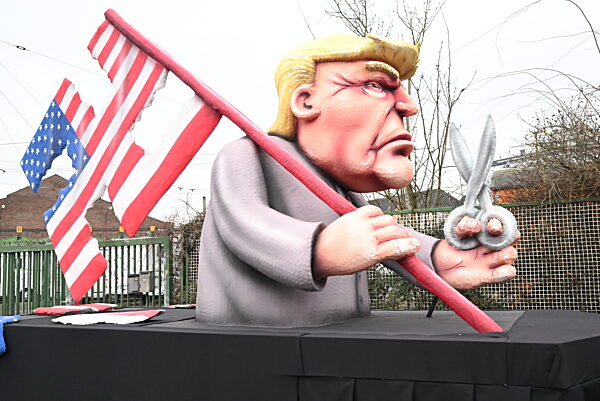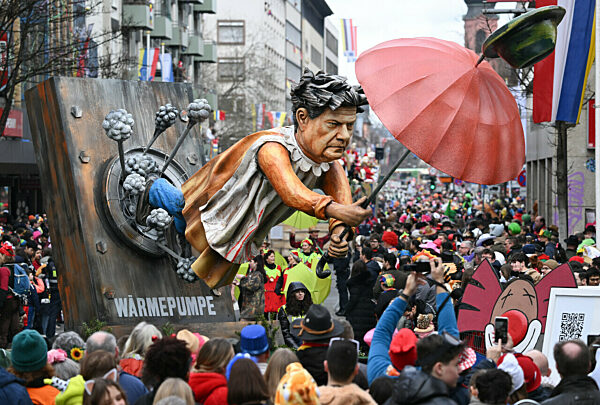In the carnival strongholds of Cologne, Düsseldorf and Mainz, parade routes were lined with hundreds of thousands of costumed revellers for the Rose Monday processions.
In Cologne, the first spectators had already gathered in the city centre at dark, several hours before the start of the “Zoch” to secure good seats.
Düsseldorf wagon builder Jacques Tilly delivered the most brutal and expressive wagons – among them Russia’s President Vladimir Putin allows himself to be orally satisfied by Church Patriarch Kirill, and Donald Trump holds a US flag carved into the shape of a swastika.
READ ALSO: The calls you’ll hear at Carnival – and what they mean

Tilly told the DPA that with his motif to Putin, he wanted to denounce the joint responsibility of the Russian Orthodox Church for the war of aggression against Ukraine. “The cooperation between the state and the church is, of course, disastrous. Kirill creates, so to speak, the ideological background for the war.”
About his portrayal of Trump with a swastika motif, Tilly said: “If this man gets the trigger again, he will seek revenge across the country and probably damage American democracy beyond recognition. That’s totalitarian, and that’s why this comparison isn’t far off, I think.”
On the subject of the far-right AfD, Tilly opted for a clown who takes off the AfD’s friendly mask, and behind it a skull appears.

In the Cologne procession, Chancellor Olaf Scholz was seen on a float as a sloth in a hammock and Foreign Minister Annalena Baerbock as an elephant in a china shop.
READ ALSO: ‘Cologne is colourful’ – Carnical kicks off amid rainy weather
In Mainz, Economy Minister Robert Habeck was portrayed as Flying Robert, who is losing his grip on the ground with his heating law. (Flying Robert is a character from a German children’s story in which a boy goes outside during a storm, and the wind catching his umbrella sends him flying away.)

AfD leader Alice Weidel and Sahra Wagenknecht, founder of the newly-formed Sahra Wagenknecht Alliance, were chauffeured as Barbies by Putin with bloody hands in a pink convertible.
North Rhine-Westphalian Prime Minister Hendrik Wüst of the CDU walked along the Cologne train. He said that Carnival is diversity in action and that, incidentally, it is beneficial to have “a little fun” from time to time.



 Please whitelist us to continue reading.
Please whitelist us to continue reading.
Member comments